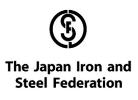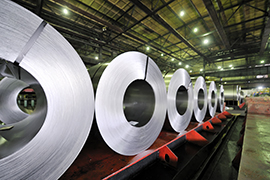Latest thematic stakeholder events
New approaches to help address global excess capacity
GFSEC workshop with stakeholders, 27 March 2024
Over recent years, the GFSEC has significantly raised global awareness about the excess capacity issue in the steel sector, offering policy solutions and building an evidence base for analysis. Despite progress, the challenge remains substantial, threatening profitability and sustainability worldwide, with signs indicating potential exacerbation. Hence, this GFSEC stakeholder event sought concrete proposals from stakeholders to address this pressing issue.
Themed "New Approaches to Help Address Global Excess Capacity", the event aimed to brainstorm innovative solutions in two sessions: one focusing on legal and political considerations, the other on technical solutions. The insights provided by stakeholders will guide GFSEC's future efforts in combating excess capacity.
Presentations
- Overview presentation on new global rules for addressing global steel excess capacity by Benjamin Blase Caryl, Associate General Counsel – International Trade & Public Policy, U.S. Steel
- Presentation on technological solutions for steel tracing by Karyl Fowler, Chief Executive Officer, Transmute Industries
- Presentation on digital tools for transparency, traceability and efficiency to the supply chain of steel by Tom Meulendijks, founder of SteelTrace
Speeding up the steel sector’s transition: Restructuring as a way to reduce excess capacity in the global steel sectore
GFSEC workshop with stakeholders, 27 September 2023
This workshop convened representatives and experts from government, industry, as well as civil society from GFSEC and non-GFSEC economies to find ways in which the Forum can facilitate the speeding up of excess capacity reductions. It also looked at the impacts and linkages between excess capacity on the green transition. It offered an opportunity for steel industry federations across the globe to voice their concerns to policy makers and inform them about what they expect from governments.
Overview presentations: Excess capacity and its consequences for the low-carbon transition and trade
- OECD Facilitator
- Mr. Marcel Genet, President at Laplace Conseil
Current trends for the steel markets on industry restructuring
- Comments on the impact of Chinese real estate sector on the Chinese and global steel sector, as well as on a potential restructuring wave, by Mrs. Nishtha Mukerjee, General Manager - Iron Ore, Ferro Alloys & Steel at SteelMint
Discussion on how to smoothen the transition of the steel sector by reconciling, trade, climate as well as capacity interests
Financing as a lever to facilitate the restructuring of steel plants
- Impact of excess capacity on global markets for steel and its financial impact, by Mrs. Becky E. Hites, President at Steel-Insights
- Practical experiences with financing steel projects, by Mr. Chris Beauman, Senior Adviser at the European Bank for Reconstruction and Development (EBRD)
- Impact of excess capacity for attracting finance in the United Kingdom, by Mrs. Chrysa Glystra, Trade & Economics Policy Manager at MakeUK (UK Steel)
Connecting the dots on steel decarbonisation initiatives: Contributing to a global inclusive dialogue
Stakeholder focus event, 21 September 2022
With direct emissions accounting for 30% of global industrial emissions, the steel sector is of critical importance for achieving the Paris Agreement’s climate goals. Moreover, representing a foundational input of many industries, including for the development of renewable energy production, steel is an indispensable ally for the decarbonisation of other sectors as well. While the mission of decarbonising steel is an urgent and compelling one, it remains a challenging task to accomplish, requiring a profound and complex transformation of its production processes. To set this transformation in motion, many initiatives have proliferated in recent years aiming at providing roadmaps, action plans, tools, insights and recommendations on how to accelerate the decarbonisation of the steel sector. These initiatives differ considerably in focus, participation and activities. The Breakthrough Agenda, launched in Glasgow during COP26 provides a platform for them to come together and work on Action Plans at sectoral level. The one on steel will be launched at COP27 in Egypt in November 2022.
Building on this momentum the GFSEC Stakeholder Event aimed to contribute to an inclusive and holistic approach to the steel decarbonisation agenda and effective delivery of its objectives. In this regard, the workshop set to inform the steel community of the Breakthrough initiatives regarding steel and other relevant international initiatives that are focusing on decarbonising the steel sector. The event also aimed to provide a platform for discussion and mutual learning, among steel industry stakeholders and steel policy makers on the availability of steel emissions data and trade related aspects to ensure the emergence of a global level playing field.
1. The steel decarbonisation puzzle: Getting to know the various actors and initiatives working towards greener steel
Presentations
- The Breakthrough Agenda and its recommendations for steel decarbonisation, by Mateus Oliveira (BEIS) and Will Hall (IEA)
- Steel Zero, by Jen Carson
- Responsible Steel, by Annie Heaton
- First Movers Coalition (FMC), Nathan Cooper
- LeadIT, by Felipe Sanchez
- The Energy and Resources Institute, by Taruna Idnani
2. An industry roundtable: Assessment of state of play and how to implement
Presentations
- US Steel Manufacturers Association, by Philip Bell
- Canadian Steel Association, by Catherine Cobden
3. The knowns and unknowns: improving availability of steel emissions-related data
Presentations
- IEA, by Domenico Lattanzio and Roberta Quadrelli
- OECD Steel Unit, by Cécile Seguineaud
- Worldsteel, by Andrew Purvis
- Rocky Mountian Institute (RMI), by Xiyuan Liu
- Resources for the Future, by Brian Flannery and Jan Mares
- The Science-Based Targets Initiative, by Brenda Chan
- Agora Energiewende, by Thomas Kouroughli
- European Commission Joint Research Center (JRC), by Jose Moya
- CEADs, Tsinghua University, by Dabo Guan
- World Resources Institute (WRI), by Neelam Singh
4. How about trade? Inclusive carbon alliances to ensure a global level playing field
Presentation
- First Movers Coalition (FMC), by Soumyajit Kar
Dealing with excess capacity and the steel sector’s transition towards decarbonisation
Stakeholder focus event, 22 April 2021
This virtual stakeholder event set out some concrete and integrated policy tools which could facilitate the transition to a more sustainable steel sector. The first session focused on the lessons learned from previous overoptimistic demand projections and subsequent industrial restructurings, and identified some common opportunities and threats to smoothen the transition to greener and more innovative production processes in the steel sector. The second session narrowed down the discussions to the technologies and policies needed to decarbonise the steel sector. Both sessions engaged private industry federations and encompassed valuable insights for policy makers.
Presentations
- Short range outlook, Edwin Basson, Director General, worldsteel
- Steel overcapacity and climate change, Mr. Marcel Genet, Founder and Managing Director, Laplace Conseil
- The impact of restructuring on steel communities, labour adjustment and the role of labour unions, Dr. Chris McLachlan, Cranfield University, United Kingdom, and Prof. Robert MacKenzie, Karlstad University, Sweden
- Lessons learned from the Brazilian privatization experience, Dr. Germano Mendes de Paula, Full Professor of Economics, Federal University of Uberlândia, Brazil
- Iron and steel technology roadmap, Peter Levi, Industry Sector Lead, Energy Technology Policy Division, International Energy Agency (IEA)
- Policies to support steel industry in transition to climate neutrality, Karsten Neuhoff, German Institute for Economic Research (DIW Berlin), Technical University Berlin
- Decarbonisation efforts of the EU steel industry, Mr. Axel Eggert, Director General, EUROFER
- Japan's decarbonization policy and the efforts of the Japanese steel industry, Mr. Shuji Sakoh, Managing Director, Japan Iron and Steel Federation (JISF)
- Seeking carbon neutrality by 2050, Catherine Cobden, President, Canadian Steel Producers Association (CSPA)
Steel market developments in the Middle East and future prospects
Stakeholder focus event, 22 September 2020
As part of the GFSEC’s regular exchanges with steel industry stakeholders, an open session was organised to inform the GFSEC about Middle East steel market developments. This session aimed to foster better understanding about key developments in the region, including steel demand, supply and capacity, as well as future prospects. Key initiatives and policy developments were also discussed by industry representatives and stakeholders from the region.
Presentations
Emergent trends affecting steel excess capacity: The impacts of Covid-19 and the move towards a circular economy
Stakeholder focus event, 7 July 2020
The impacts of Covid-19 on global steel markets and long-term factors with implications for steel demand and excess capacity were the focus topics of the GFSEC stakeholder event in July 2020. The event attracted more than 130 participants, including representatives from steel associations, steel experts, and government officials from around the world.
Session 1. The Covid-19 pandemic: impacts on steel markets and excess capacity
The Covid-19 pandemic is leading to a sharp decline in steel demand around the world, and to an increase in excess capacity. While there are many different views and open questions about the speed of the eventual recovery, it may take quite some time for steel demand to fully recover, highlighting the urgency of continuing to address the excess capacity problem facing the global steel industry. This session fostered open discussion between industry stakeholders and government officials including on the impacts of Covid-19 on steel markets and the expected recovery path, policy responses to the crisis, and the longer-term effects that the crisis may have on excess capacity and the overall health of the global steel industry.
Presentations
- Short-range outlook for steel demand by region 2020-21, Edwin Basson, Director General, World Steel Association
- Emerging trends affecting steel excess capacity: Impact of COVID-19, Axel Eggert, Director General, European Steel Association (EUROFER)
- The Covid 19 pandemic: Impacts on the Japanese steel market, Naoki Sekiguchi, Japan Iron and Steel Federation (JISF)
- US economic and steel market update, Kevin Dempsey, American Iron and Steel Institute (AISI)
- Mexico economic and steel market update, Salvador Quesada, Mexico's National Chamber of the Iron and Steel Industry (CANACERO)
- Impact of the Covid-19 pandemic on the Russian steel market, Dmitriy Kolomytsyn, Russian Steel Association
- Current situation in the Turkish steel industry and outlook, Veysel Yayan, Turkish Steel Producers Association
- The ASEAN steel industry in 2019 and overcapacity issues, Yeoh Wee Jin, South East Asia Iron and Steel Institute (SEAISI)
Session 2. The longer term: circular economy trends and other long-term factors with implications for future steel demand and excess capacity
Over the longer term, there are many uncertainties about possible behavioural changes resulting from the Covid-19 pandemic that could alter how people move, work and consume, all of which might accelerate longer-term trends, including the move towards the circular economy. Steel – an infinitely recyclable material – is expected to play a crucial role in the circular economy, which provides a comprehensive framework to reduce waste and to design products in a way to be reused, remanufactured and recycled, eventually accelerating the decoupling of economic growth and material inputs. This decoupling will have implications for how much steel society will use in the future and how much steelmaking capacity is needed to meet that future demand. This session enabled substantive discussion on the move towards a circular economy and the implications for steel demand and excess capacity in the steel sector.
Presentations
- Circular economy and other slowing global steel demand drivers, John Lichtenstein, Crucible Consulting LLC
- Circular economy in the steel industry, Edwin Basson, Director General, World Steel Association
Session 3. Key messages from industry and wrap-up
- Excess capacity: Key messages for policymakers, presentation by Juan Antonio Reboulen, Mexico's National Chamber of the Iron and Steel Industry (CANACERO)
New sources of steel demand and steel market developments in the ASEAN region
Stakeholder focus event, March 2020 (postponed)
While Covid-19 and consequent measures led to a postponement of the March 2020 events, the materials developed for the GFSEC stakeholder event and the open session are available below (materials will continue to be added on a regular basis). Stakeholder presentations do not necessarily reflect the views of the GFSEC or its members.
New sources of steel demand
Significant changes in consumer preferences and rapid technological advances are changing the business environment for the steel industry in a major way. An already cyclical industry now needs to adapt to structural changes in steel demand, as society calls on the industry to produce different and better types of steel products to meet its needs.
To learn more:
- Emerging demand for new and innovative steel products, Jun Goh, Chief Economist, POSCO Research Institute
- Setting the course for a healthy steel industry, Edwin Basson, Director General, World Steel Association
Steel market developments in ASEAN economies and future prospects: growth, risks and way forward
Southeast Asian economies have become increasingly important for the global steel industry. Steel demand in the six major economies of the Association of Southeast Asian Nations (the so-called ASEAN-6, i.e. Indonesia, Malaysia, Singapore, Thailand, Philippines, and Vietnam) amounted to 91 million tonnes in 2018, up by 22% in a matter of five years. Today, steel demand in the ASEAN-6 exceeds that of Africa, the CIS, the Middle East, and South America.
To learn more:
- The ASEAN steel industry situation, Yeoh Wee Jin, Secretary-General, South East Asia Iron and Steel Institute
Other exchanges between industry and the GFSEC
Steel industry representatives have regularly participated in GFSEC meetings where they share their experiences with steel industry restructuring and adjustment, exchange views on the market situation in their respective economies and the future outlook for the steel sector, and outline key lessons to prevent the re-emergence of excess capacity in the future. Some of their contributions are available below. Additional materials will be added as they become available. Stakeholder presentations do not necessarily reflect the views of the GFSEC or its members.
American Iron and Steel Institute
 |
|
Eurofer
 |
|
Japan Iron and Steel Federation
 |
|
Turkish Steel Producers Association
 |
|
worldsteel
 |
|
What stakeholders are saying
16 Steel Industry Groups Welcome Agreement to Continue International Work to Reduce Global Steel Overcapacity
November 2019
"Governments of steelmaking economies worldwide must redouble their efforts to address this persistent global excess capacity in the steel sector, eliminating the support measures that cause it, and implementing strong rules and remedies that reduce excess capacity. We call on governments to continue the work on the issue of steel excess capacity without delay.
"We appreciate the leadership of the Government of Japan in the past year to make meaningful progress in the Forum, and its conclusions as Chair. Recognizing the severe impacts that global steel overcapacity and market distorting policies in the steel sector around the world are continuing to have on our industry, we have urged the continuation of the work of the Forum to ensure its recommendations are turned into action. We are pleased that it is the will of a large majority of members to pursue meaningful efforts on the issue of steel excess capacity on the same basis as the work of the Forum over the past three years."
Statement by 19 steel associations
October 2019
"We are grateful for the efforts made to date by the G20 and OECD governments to address excess capacity, and to support a level playing field at the G20 Global Forum on Steel Excess Capacity and OECD Steel Committee.
"Unfortunately, effective reductions in capacity and concrete actions to remove government measures that distort markets, including raw materials markets, have not been adequate to date. Efforts by governments to eliminate practices that lead to excess capacity should be redoubled.
"We are hopeful that the diligent efforts of Japan, the current G20 Chair, are successful in extending the G20 Global Forum on Steel Excess Capacity beyond 2019, and we urge all G20 and OECD steelmaking economies to pursue all vigorous means to obtain substantive results on the critical problem of steel excess capacity."
The European Steel Association (EUROFER)
March 2019
“Continued international work on excess capacity and related government support measures would contribute to the sustainability of our global industry...”
“GFSEC’s work has already produced results, such as detailed statistics on steel capacity and production around the world and has instigated work to cut excess capacity where it is needed most...”
“In a world where global overcapacity is still very much present – and with proliferating trade distortions – there is a greater need than ever for the GFSEC.”
Kosei Shindo
Worldsteel Chairman, 2017-2018
“Under the initiative of this forum chaired by Germany and Argentina and with the accumulated efforts of each country, the transparency of the steel supply-demand environment has improved in the past two years following the establishment of the Global Forum. The multilateral approach by the Global Forum to exchange information on crude steel capacity developments and government policies affecting excess capacity, including market-distorting subsidies and other government support measures, have been effective to date. I highly appreciate that the Ministerial meetings held in September 2018 agreed to them.”








